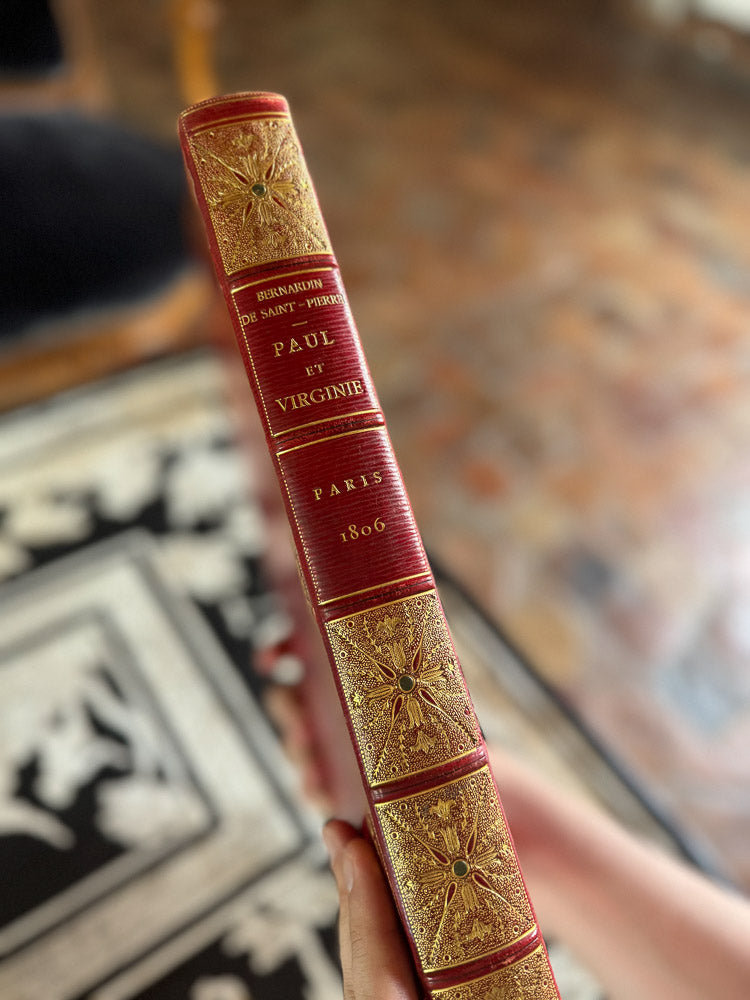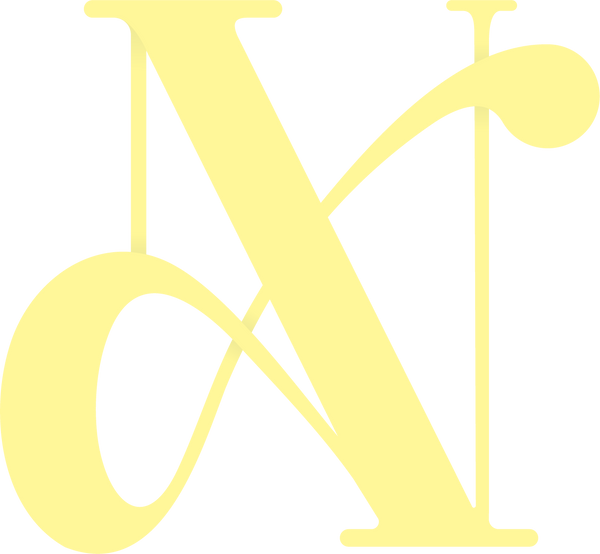
A Little Survival Guide for the Beginner Bibliophile
Alexis NoquéGetting started in bibliophily can be exciting but also intimidating. What to collect? What theme to choose? What period to focus on? How to read a descriptive notice? Where to buy old books and how to avoid buying mistakes? This survival guide for beginner bibliophiles answers all these questions.
The first rule: collect what you love!
The beginning bibliophile is often tempted to collect everything. Some colleagues will say that you should focus on a theme, a period, or even a particular publisher. And they will be right! But buying according to the impulse, to begin with, will work just as well (go here to discover our collection) to spark the beginning of a bibliophilic adventure! In any case, there are two types of collector that often tend to overlap.
Collector of the book as an object
The first is the collector interested in the object itself - its binding, its provenance, its illustrations, its paper. He seeks to complete his collection by referring to a bibliography, articles and books on the favorite subject. This type of collector will thus tend to concentrate on a period or on a theme (for example, the First Editions).
Thematic collector
The second type of collector is the one who is interested in the ideas, themes or concepts that the books represent. He will tend to want to collect around an idea or intellectual content (for example, Literature). His bibliographic references will then be more specific and may require doing more personal research or asking specialized dealers for bibliographic indications.
If you are still hesitating...
In any case, each collection is unique and reflects a path of thought without comparison. Each object in the collection, connected to the whole, reflects a fragment of the collector's personality. As the German philosopher Walter Benjamin said, "We do not collect books to read them, but to define ourselves through them."
If you are still hesitant about the choice of theme, period or "idea" to collect - a conversation with booksellers (don't hesitate to contact me!) or other bibliophiles can only help you! Never forget that in a few years, you can own an exceptional collection on a subject that no one previously collected. Building a beautiful library is not only a question of price, but of a journey through the evolution of your knowledge on a very particular subject... A subject that may, subsequently, evolve over the course of your life and perhaps lead you to sell part of your collection to allow you to acquire goods on your new favorite theme.
Where to buy your old books?
There are four main places where the antiquarian book market operates: bookstores, auction rooms, bibliophile fairs, and the Internet. Each place has its own interest and should be used wisely.
Bookstores
Bookstores allow you to get books of which you can be sure of the quality. It is also the best place to learn since you can consult as many books as you want and ask your questions at the same time before making your choice regarding a potential acquisition. In addition, it is important to say it, you can always decide to return your purchase within the regulatory limits imposed. In my case, since it is currently an online bookstore, you can always ask me your questions by email, ask me for an appointment by video or come to the address where my books are stored to consult them.
Auction rooms
Auction rooms are probably the place where you can get the best deals, but will most likely be the place (with the internet) where you can make the worst mistakes you can make - both in terms of quality and monetary value. It is often said that you should not start out in bibliophily with a speculative mindset: this is true. But it would still be a shame to buy a book of lower quality than what you could find in a bookstore or at a bibliophile fair for more money. Finally, you can still learn things at the exhibitions in the auction room: the expert of the sale is always present and, often, the latter appreciate being able to chat with other bibliophile friends. Do not neglect this aspect either.
Bibliophily Fairs
Book fairs allow you to meet booksellers from an entire region, an entire country, or even - for the most prestigious - from the entire world. Obviously, it is at these fairs that you will have the chance to find absolutely unique works due to their provenance, their binding, their rarity that will complete your library. It is also an opportunity to open your senses to new horizons and, thus, expand your collection with works that sometimes did not even cross your mind. Or, it will be the opportunity to find that rare pearl that you have wanted to get your hands on for ten years. To follow these events, you just need to follow the SLAM (Syndicat national de la Librairie Ancienne et Moderne) and the LILA (International League of Antique Booksellers).
Internet
Finally, there is the Internet . Terra incognita twenty years ago, it is today a major vector of the market for old books - both formidable and terrible. Some books, once considered rare, are no longer so at all and have had a strong impact on booksellers around the world. Especially since today, anyone can offer their books for sale online: you will find books of all qualities, sometimes with completely absurd prices and descriptions. These are therefore purchases to be avoided in most cases. Prefer sites reserved for professionals (SLAM, LILA, Livre Rare Book , MareMagnum , AbeBooks ...) or bookseller sites like this one! Also prefer booksellers displaying an affiliation with SLAM, LILA or IOBA (Independent Online Booksellers Association). The first two require sponsorship and guarantee know-how and professional ethics. The third requires an audit of know-how and ethics via the website offered by the bookseller.
How to read a description of old books?
In most bookstores, the descriptive notices of old books follow standards established in the 19th century. Often, you will see today some liberties with these standards but, in one way or another, they still relate to this old way of doing things. This allows everyone to search for specific information at a glance. You will find this same description on the works offered on this site.
This notice is generally presented in two distinct parts:
-
This part concerns the description of the work and is presented as follows:
- LAST NAME First name. Title of the book as written on the title page.
- Place of publication, Publisher , Date of publication.
- Book format (for example: In-8, 200x150mm), number of pages (for example: 300pp). Neutral technical description (without mentioning defects) of the book starting with the covers, then the spine, possible lining, edges (Name of the binder if indicated).
-
The following contains the bookseller's personal comments, ranging from the most general to the most specific:
- Information about the edition (e.g. whether it is an original edition), the text, the author, the illustration
- Type of paper (if it is a deluxe edition), provenance (if there are notations or bookplates indicating a provenance from a large collection), type of binding (for example, 16th century Lyon binding), defects (torn pages, scuffs on one of the covers, rubbed spine, etc.)
- General bibliography for the work
Some additional points to know:
- 1 sheet becomes f. in a notice, 2 sheets become ff.
- 1 page becomes p. in a notice, 2 pages become pp.
- A mention in square brackets indicates that it is not printed on the paper. For example, [3] ff. indicates that there are 3 leaves without pagination and [HUGO Victor] indicates that the author's first and last name are not mentioned on the title page.
- Personal comments may sometimes include bibliographic references, other than the general bibliography at the end of the descriptive notice, and are indicated at the end of the paragraph.
To go further, I can only advise you to get the excellent book by Anne Lamort "Tout ce que vous avez toujours voulu savoir sur la Bibliophilie Sans jamais avoir osé le demander" which will be a first book to help you navigate your first steps as a bibliophile. Otherwise... You can read my next articles!
Learn how to assess the condition of an old book
Regardless of the medium through which you wish to obtain your next antiquarian book, you will need to read the descriptive notices carefully. Whether in a bookseller's catalog or at a public auction, be alert to the elements described as well as those not described. If a description does not mention that it is a first edition or a period binding, it is probably not the case.
Pay attention to the way the photos are taken - they can sometimes show a major defect in a very discreet way and not be described in the notice. This is unfortunately still a common practice in public sales. If you have the slightest doubt, never hesitate to ask for additional photos or information on the condition of the book you are interested in. At a bookseller, you can be sure that the defect will be specified in the notice.
Going further in your research
The more specific you become about your choice of collection, the more demanding you will become with the choice of works to collect but, above all, the more you will know the true rarity of each work you are looking for in order to complete your library.
To do this, you will need to obtain some bibliographies to know the exact collation (i.e. the number of pages) of the works, when the first edition was published, and other very interesting things to know. If you are not sure which bibliography to obtain, do not hesitate to contact your bookseller or myself to help you.
Your research should not stop at the simple bibliography. Obtaining general works on the history of books will allow you to recontextualize your collection in History (do not hesitate to visit my reading recommendations ). Subscribe to bibliophile magazines: I can only recommend the Bulletin du Bibliophile or Art & Métiers du Livre . Finally, do not hesitate to search for and read articles, for example on ResearchGate where you will find many articles available to download or, if necessary, to ask the researcher who published it on the site.
